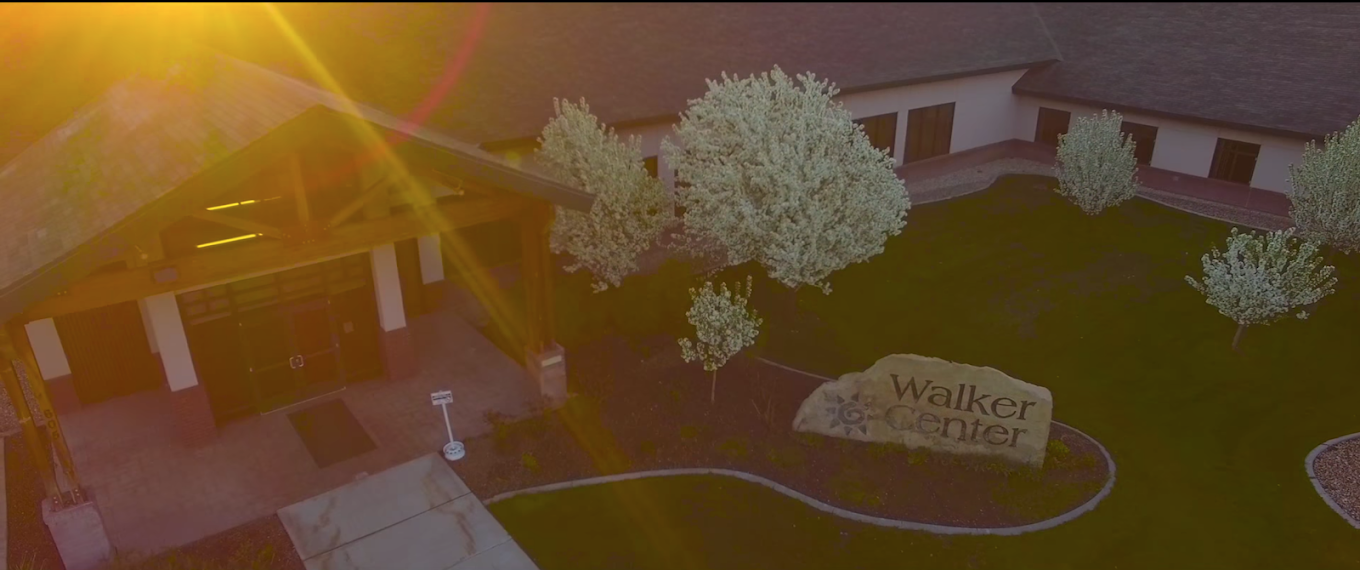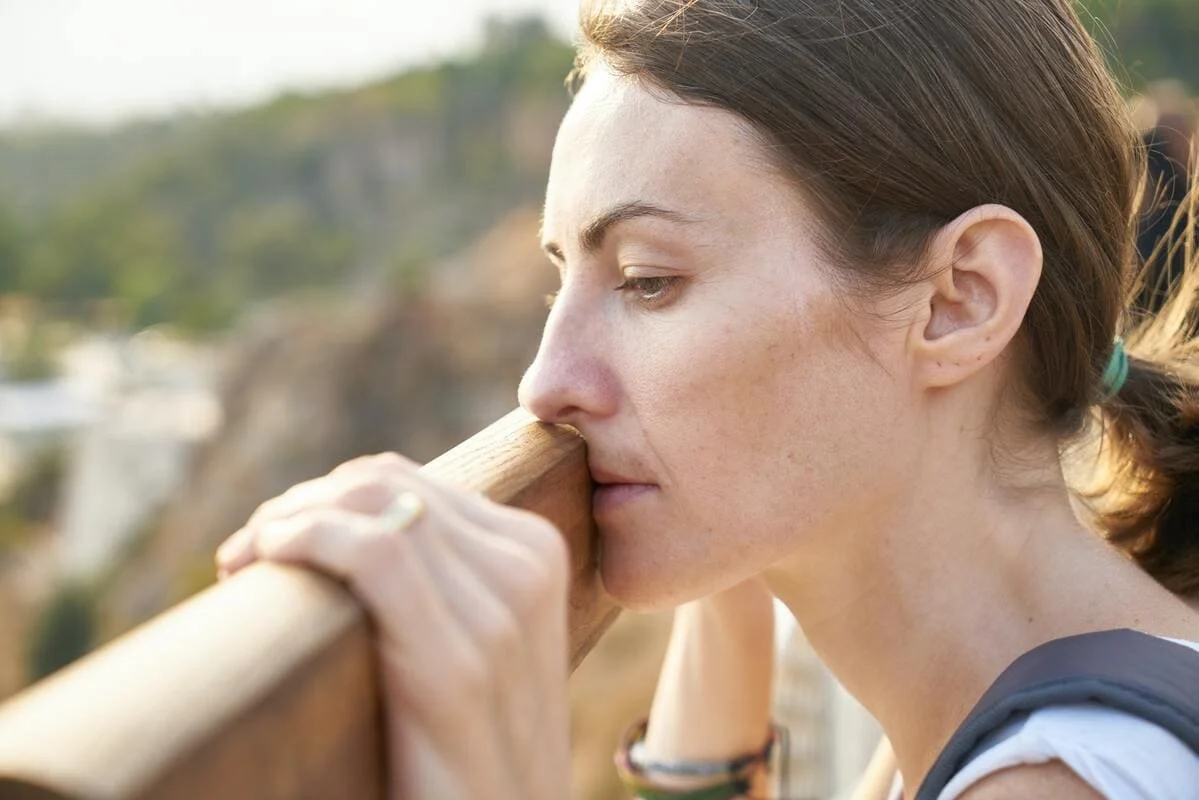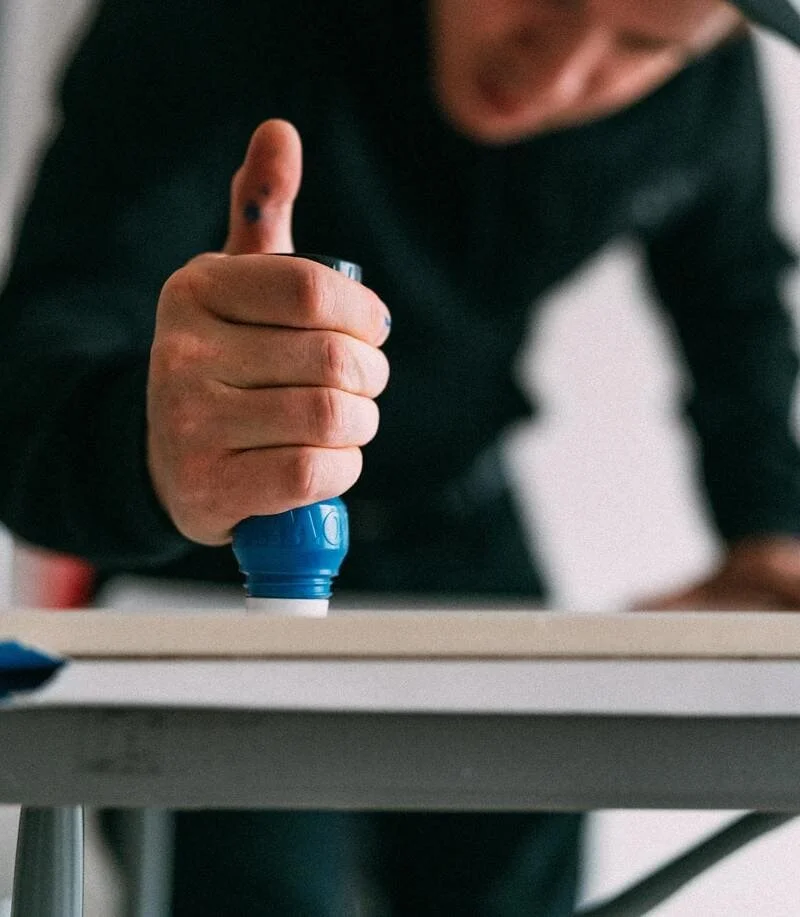resources on recovery, Addiction & Mental health
Welcome to The Walker Center blog, where you can find real recovery stories, resources on treatment, mental health awareness, recovery, avoiding relapse, as well as info for friends and family.
Zach had a great job, was making “killer” cash, and thought that because he had money, his drug use wasn’t a problem. He was spending $600/day on heroin & opioids for years. After a near-death experience, he got help. Now, he’s been clean for six years. Read his inspirational story & learn what message he has to share with anyone struggling with addiction.
In honor of September being recovery month, we wanted to highlight 10 Celebrities who took the plunge into sobriety and are now living their best lives - clean, healthy, and sober. Read on for celebrity sobriety inspiration.
For us here at The Walker Center, we are excited because September is Recovery Month. This gives us the time to celebrate and talk about those who have made a recovery from their addiction. We see it as a time to inspire, listen, and learn from others.
Matt watched experimenting with substances in his youth evolve into a dangerous, expensive habit—a habit that eventually led to a dark climax.
Mark had everything going for him—a growing career, a family, a house—all the things we often view as success.
Becky MeadFrom: Boise, IDAddicted to: AlcoholBECKY’S BACKSTORYBy the numbers, Becky Mead’s chances at sobriety and happiness didn’t look too good
Overcoming addiction is a challenge in itself. Battling the stigma of addiction is an entirely separate—and potentially rough—battle. How can a recovering addict get
The Walker Center treats those from all walks of life and various types of substance addiction. Because we treat addiction as a disease and address the problems
The addicts that we treat at The Walker Center come from all walks of life and suffer addiction to various types of substances, sometimes multiple substances at once.
Subscribe to the blog to get email updates
Most recent posts
Progress during recovery isn’t always visible. Learn how growth, healing, and resilience often happen quietly, and why those unseen moments matter just as much.
Setting New Year’s resolutions in recovery? Set realistic, recovery-focused goals that support sobriety, resilience, and long-term growth in the coming year.
Healthcare professionals face burnout and compassion fatigue. Learn how The Walker Center helps medical workers recover from addiction with confidential care.
Lawyers face intense stress and burnout. Discover how The Walker Center helps legal professionals recover from addiction with confidential, evidence-based care.
Looking to end the year with clarity and confidence in your recovery? Learn how to reflect, reset, and build a stronger foundation for the year ahead.
Discover how gratitude strengthens resilience, supports recovery, and helps you enter the new year with clarity and hope. Explore healthy habits and practical tips for building a stronger mindset.
Thinking about addiction recovery in Idaho? See why the privacy and peace of rural Idaho make places like The Walker Center in Gooding the perfect place to heal.
Discover The Walker Center’s philosophy of addiction recovery—blending compassion, evidence-based care, and 12-Step principles to help Idahoans heal.
Many professionals struggle with addiction while appearing successful. Learn the signs of high-functioning addiction and why pride prevents seeking help.
Reaching out for help is one of the bravest steps you can take. At The Walker Center, we want you to feel supported and informed from the moment you submit a Get Help Now form. Our admissions process is designed to be clear, compassionate, and personalized so that you or your loved one can enter treatment as smoothly as possible.
Addiction Resources, Tips & More
So your loved one has gotten treatment and they are in recovery, and you can’t help but hold a grudge for all the difficult, hard, and painful times they put you through.
You’re dealing with the guilt of bearing a grudge; you know you should be happy for them, be supportive… However, you find it hard to move on after all you have been through. Just because they said sorry and are doing better doesn’t erase the past. How can you deal?
Heroin addiction can be devastating to those using as well as their loved ones. At The Walker Center, we understand the impact of this struggle and have 48 years of experience in helping those struggling with addiction get back on their feet again.
Embarking on the journey to recovery from addiction is a significant and courageous step. At The Walker Center, we understand the challenges involved in this process and know that finding accessible resources and support can make a significant difference.
Adderall has significantly increased in popularity since its introduction to the market in 1996. Despite its wide availability, it carries a high risk of dependence and misuse. Here’s what you should know.
The new year is a time for taking a step back to ask yourself how things went. What our minds usually like to do is focus on the negative aspects. I didn't do X. I should have done Y. It's easy to get caught up in regret. However, it's not healthy. We must be kind and forgive ourselves. And one of the best ways to reflect positively is through the practice of mindfulness. But how can you use mindfulness to be more healthy, self-aware, and successful this year.
Here, we cover these topics and give you tools to tackle the new year head-on.
Do you have a hard time during the holiday season? This is often a time of year when family and friends spend time together, and cities are bustling with life, shopping, and all the seasonal merriment.
The holidays also offer up a lot of tricky situations when we are at our most vulnerable. There may be triggers that come along with the end-of-the-year celebrations. The temptation to drink or use is heightened. With that in mind, here are four methods to help you start the new year sober or clean.
If the holiday season is said to be all about the festive mood, celebration, and cheer, then why do people feel depressed? Especially those people struggling with an addiction?
Today we look through the main reasons why you don’t feel jolly. We also give you suggestions on how to cope with those Christmas blues.
One in three Americans reports that substance addiction has affected their family. If this is the case for you too, you are probably asking yourself - how can I support my sober partner over the holiday season? While many people are excited about Christmas, others who are battling addiction often find this time of the year particularly stressful.
Here are 7 ways you can support your sober spouse over the holidays.
Whether you started your recovery journey recently or many years ago, the holiday season can be pretty challenging. It seems like society has conditioned us to think that celebration equals alcohol. And it is no surprise that many people find that triggering.
With that in mind, here’s 11 steps you can use to help you get through the holiday season sober 🤜
This time of year can be challenging, particularly for those suffering from addiction, as celebrations and holidays are often triggering for those in recovery. It can be even more difficult when suffering from Seasonal Affective Disorder. Here are some tips to help you cope.
It can be all too easy for people to conflate the ideas of meditation and mindfulness. Understandable since the two terms are often used interchangeably. So is there a difference between meditation and mindfulness? The simple answer is yes. Read on to learn what the difference between meditation and mindfulness is.
Meditation, focusing and soothing the mind, has a vital role in sobriety. During the treatment process, you may suffer a rollercoaster of emotions. Practicing meditation can be an effective and reliable tool for handling these feelings during healing and long after you achieve sobriety. Meditation is done in different ways, but the important thing is finding the right style for you.
Speeding up your recovery from substance abuse can be difficult. But you can make it easier for yourself. Your diet, physical health, and even the people around you all can help you in big ways. How? Here are five mindfulness hacks to step up your recovery journey.
Every parent has their child’s well-being in mind, and learning how to get your teenager to stop drinking can help support our children’s wellness.
What is the relationship between PTSD and addiction? Why does PTSD increase the risk of struggling with addiction and how can you help someone struggling with these issues? We break down the link between PTSD and addiction and show you how to help someone cope.
How to tackle men’s mental health and break the stigma around seeking treatment for substance abuse?
Men are nine times less likely than women to seek help for mental health. Why does this happen and what can you do to help a man in your life get help?
Feelings of anxiety or symptoms of depression may feel like a result of circumstances going on outside, but in reality, they are caused by what's going on inside. Two people may go through identical circumstances and respond differently depending on their background, current life circumstances, and chemical makeup. When a person is experiencing the symptoms of anxiety and depression, what exactly is going on inside their bodies?
Addiction is more than an emotional dependence on a particular substance. There are biochemical factors at play. Many fail to realize that the brain chemistry of someone battling addiction is actively working against them. Serotonin plays a fundamental role in the biochemical aspect of addiction, and today we're going to explain why.
Do your genes determine your fate? Why can one person drink normally, while another loses all control? Are some people destined to become addicts due to the quirks of their genetic makeup - factors beyond their control? Can nurture overcome nature? Today we tackle the debate - are substance abuse disorders genetic?
Recovery is a beautiful journey marked by self-discovery and transformation. That doesn't mean that it's easy, linear, or guaranteed. If your friend or loved one is in recovery, providing the proper support could be the difference between recovery and relapse. In honor of April being Alcohol Awareness month, we give you the inside scoop on ten things you DON'T say to someone in recovery.
Mindfulness and meditation are considered cornerstones of good mental health. But what if it doesn’t work for you? If so, don't worry; you are not alone. Mental health is not a one-size-fits-all endeavor, and just as humans are different, so will our responses differ. We break down what mindfulness is and what you can try if you don’t find it helpful.
Stress is America's silent killer. The consequences of prolonged periods of stress are as harmful to the body as alcoholism and substance abuse, but many don't pay attention to the warning signs. Don't let this happen to you. When you notice your stress levels rising, use one of our ten stress-busting tips.
Stigmatizing mental health conditions creates a vicious cycle that prevents people from seeking the help they need due to fear of social repercussions. The consequences of stigma can be devastating and the only way to beat stigma is to fight against it. So how can we do this?
Do you think you’re dependent on alcohol or substances? Do you want to get sober? Not sure how to make this idea a reality? If the answer to these questions is yes, you should be proud of yourself for making the brave choice to prioritize yourself and your future.
Addiction and mental health are so heavily intertwined that it's impossible to focus on one without looking at the other. It has long been proven that addiction and recovery are as mental as they are physical.
The SMART technique has been used time and time again when setting realistic goals for recovery. And why is that? Because it works. Check out our blog where we give practical advice to help you recover, the SMART way.
Summer has arrived, and you have one primary objective in mind: staying sober. It won’t be easy, but we know you can do it. As with anything, the more prepared you are, the better chance you have of success.
Our CEO, Debbie Thomas, was recently asked to participate in a discussion on the podcast about substance use disorder education in Idaho. Take a listen to the latest episode here, covering motivational interviewing and other topics.
Summer is arguably the best time of the year, an incredible few months where you can soak up the sun, take time off and have fun with your friends and loved ones.
Sobriety Tips & More
Embarking on the journey to recovery from addiction is a significant and courageous step. At The Walker Center, we understand the challenges involved in this process and know that finding accessible resources and support can make a significant difference.
At The Walker Center, we recognize that while traditional therapies and counseling play pivotal roles in the recovery process, integrating fresh air, nutrition, and exercise can significantly enhance outcomes in one’s journey of addiction recovery.
In the early stages of addiction recovery, it is not uncommon for the newly sober to discover their current living environment is creating a roadblock on their journey, as they may find themselves surrounded by distractions, stressors, and temptations that can usher in a relapse. In this post, we will explore the benefits of a sober living home, what you can expect from sober living requirements, and how changing your environment can radically encourage your recovery goals. Keep reading to learn more.
There is no sugarcoating that the early days of sobriety are difficult. Adjusting to new routines and mindsets without the influence of drugs or alcohol comes with a unique set of challenges and experiences. These challenges are a natural part of the recovery process, but it’s important to remember–just because sobriety is tough doesn’t mean it has to be hard. Read on to learn how a sober morning routine can help you hack your recovery goals and invite more ease into your day.
One of the hard truths of recovery is sticking with your decision to lead a sober lifestyle takes work. It isn’t a choice you make once, but rather one that you keep making time and time again. When the sobriety motivation starts to wane, having an arsenal of resources to support you can help you get through the tough moments without risking the progress you’ve already made. Grab your headphones and your favorite booze-free treat, here are 6 empowering recovery podcasts to keep you motivated on your path to sobriety.
Learn about the importance of managing stress in addiction recovery and how it can impact your health. This article shares six helpful tips for managing stress to help you avoid a potential relapse.
Increasing awareness and normalizing conversations about alcohol can reduce the overall stigma of alcohol addiction and help you reframe your relationship with drinking. Keep reading to learn more.
Making the decision to lead an alcohol-free lifestyle is huge and it can feel challenging, but that doesn’t mean your weekends have to be spent feeling left out. Here are 10 fun weekend activities in the Twin Falls area that don’t involve drinking.
Whether you’re looking for honest advice and support in getting sober or simply want to replace doom-scrolling with something more productive, here are 11 recovery accounts to follow in 2023.
There is a lot of pain in realizing some relationships only value you as a drinking buddy and party friend, or that addiction may have harmed your most cherished connections. However, this realization can also guide you to friendships that value and accept you as you are on your current path.
Making new friends as an adult may seem intimidating, but committing to this process can help you establish truly meaningful relationships and help you sustain a sober lifestyle. With this in mind, here are 4 ways to get started finding friends as a sober adult.
Over the holidays parties, family gatherings, get-togethers with friends, and enormous Christmas dinners come hand in hand. It can be easy to forget that the festive season is about spending time with those we love, not just hopping around from gathering to gathering.
This can pose particular challenges for people in recovery. Being surrounded by triggers and temptation leads to relapse. How can you support your friend or family member trying to recover during this time?
One in three Americans reports that substance addiction has affected their family. If this is the case for you too, you are probably asking yourself - how can I support my sober partner over the holiday season? While many people are excited about Christmas, others who are battling addiction often find this time of the year particularly stressful.
Here are 7 ways you can support your sober spouse over the holidays.
Whether you started your recovery journey recently or many years ago, the holiday season can be pretty challenging. It seems like society has conditioned us to think that celebration equals alcohol. And it is no surprise that many people find that triggering.
With that in mind, here’s 11 steps you can use to help you get through the holiday season sober 🤜
With more and more people openly discussing mental health, gaslighting has become a common subject over the past few years. There’s more and more awareness of this kind of emotional abuse, which helps to prevent it in relationships. But before accusing someone of this behavior, it is essential to know what gaslighting means and how to look for the signs of gaslighting.
Once you give up drinking, it can seem like half the things you used to enjoy are off the table. But if half your social life revolves around alcohol, this is unhealthy and may have been a contributing factor that leads to addiction. Deciding to live without alcohol may seem challenging, but all you have to do is look for things you can substitute for drinking.
“Trauma-Informed Care” is the new kid on the block when it comes to addiction treatment. But what exactly does it mean?
Trauma-informed care recognizes that it is not only physical trauma that can have long-lasting neurological, emotional, social, biological, and psychological effects. It also involves five guiding principles that are adhered to by people’s physical and emotional safety.
Meditation, focusing and soothing the mind, has a vital role in sobriety. During the treatment process, you may suffer a rollercoaster of emotions. Practicing meditation can be an effective and reliable tool for handling these feelings during healing and long after you achieve sobriety. Meditation is done in different ways, but the important thing is finding the right style for you.
Watching a loved one suffer from a drinking problem is hard, but there is hope for recovery. While you can’t beat your partner’s addiction for them, you can help them with coping mechanisms and potentially even help them realize that they may need help to overcome their addiction.
Am I an alcoholic? If you have ever asked yourself this question, you are not alone. Alcohol plays a unique role in society. It is the only psychoactive substance that is legal, prevalent, and glamorized. It can also destroy your life. To see if your drinking has crossed over into disorder, look back on the last 12 months and ask yourself these 5 questions.
The alarm bells for alcoholism and substance use disorder are physical, behavioral, and psychological. If you're concerned about your alcohol intake but aren't sure if it's become problematic, time is of the essence! Here are five signs to look out for.
The SMART technique has been used time and time again when setting realistic goals for recovery. And why is that? Because it works. Check out our blog where we give practical advice to help you recover, the SMART way.
Do you want to look back on the holidays this year with no regrets? Are you concerned that you could turn towards excess? Enjoying the holidays and staying healthy doesn't have to be mutually exclusive.
One of the most common experiences addicts share is that of anxiety. Overwhelming feelings of terror or panic compound their physical dependence on alcohol or substances. They fall into a vicious cycle where the sufferer turns to their substance to escape from their anxiety, which in turn leaves them more anxious than they were before.
Successful recovery requires a multifaceted approach that tackles the different physical, behavioral, and cognitive components of addiction. An increasingly popular method that works in conjunction with traditional talking treatments is experiential therapy.
In honor of #RecoveryMonth we want to give you 30 practical tips to get you to 30 days alcohol or substance-free. We would love for you to bask in the glow of your serious achievement and let it boost your confidence that you'll make it to day 60, 90, and beyond. You got this!
Summer has arrived, and you have one primary objective in mind: staying sober. It won’t be easy, but we know you can do it. As with anything, the more prepared you are, the better chance you have of success.
So you’ve made the decision – you are going to stage an intervention for your friend or loved one. You feel like you don’t have any other option as you watch the consequences of their actions move from bad to worse.
Our CEO, Debbie Thomas, was recently asked to participate in a discussion on the podcast about substance use disorder education in Idaho. Take a listen to the latest episode here, covering motivational interviewing and other topics.
Summer is arguably the best time of the year, an incredible few months where you can soak up the sun, take time off and have fun with your friends and loved ones.
You will often see the terms substance abuse and addiction thrown around interchangeably. To the average person, these two terms may seem the same but they are actually very different ideas.
Tips on avoiding relapse
Relapse prevention is a continual part of the recovery journey. Understanding how to manage stress, build a strong support system, and overcome feelings of guilt and shame can significantly increase the likelihood of long-term sobriety. Whether you are in recovery or supporting a loved one, knowing these strategies can provide the necessary tools to navigate the challenges of maintaining sobriety.
Embarking on the journey to recovery from addiction is a significant and courageous step. At The Walker Center, we understand the challenges involved in this process and know that finding accessible resources and support can make a significant difference.
At The Walker Center, we recognize that while traditional therapies and counseling play pivotal roles in the recovery process, integrating fresh air, nutrition, and exercise can significantly enhance outcomes in one’s journey of addiction recovery.
Addiction is a chronic disease and studies show that 40-60% of people with a substance use disorder will face a relapse at some point. Managing a loved one’s relapse in recovery can be an arduous and emotionally taxing experience, but your support is critical to helping them get through it. Have you found yourself wondering what to do when a loved one relapses? Here are 7 things you can do to encourage them as they get their recovery back on track.
In the early stages of addiction recovery, it is not uncommon for the newly sober to discover their current living environment is creating a roadblock on their journey, as they may find themselves surrounded by distractions, stressors, and temptations that can usher in a relapse. In this post, we will explore the benefits of a sober living home, what you can expect from sober living requirements, and how changing your environment can radically encourage your recovery goals. Keep reading to learn more.
There is no sugarcoating that the early days of sobriety are difficult. Adjusting to new routines and mindsets without the influence of drugs or alcohol comes with a unique set of challenges and experiences. These challenges are a natural part of the recovery process, but it’s important to remember–just because sobriety is tough doesn’t mean it has to be hard. Read on to learn how a sober morning routine can help you hack your recovery goals and invite more ease into your day.
One of the hard truths of recovery is sticking with your decision to lead a sober lifestyle takes work. It isn’t a choice you make once, but rather one that you keep making time and time again. When the sobriety motivation starts to wane, having an arsenal of resources to support you can help you get through the tough moments without risking the progress you’ve already made. Grab your headphones and your favorite booze-free treat, here are 6 empowering recovery podcasts to keep you motivated on your path to sobriety.
Making the decision to lead an alcohol-free lifestyle is huge and it can feel challenging, but that doesn’t mean your weekends have to be spent feeling left out. Here are 10 fun weekend activities in the Twin Falls area that don’t involve drinking.
Once you give up drinking, it can seem like half the things you used to enjoy are off the table. But if half your social life revolves around alcohol, this is unhealthy and may have been a contributing factor that leads to addiction. Deciding to live without alcohol may seem challenging, but all you have to do is look for things you can substitute for drinking.
“Trauma-Informed Care” is the new kid on the block when it comes to addiction treatment. But what exactly does it mean?
Trauma-informed care recognizes that it is not only physical trauma that can have long-lasting neurological, emotional, social, biological, and psychological effects. It also involves five guiding principles that are adhered to by people’s physical and emotional safety.
Meditation, focusing and soothing the mind, has a vital role in sobriety. During the treatment process, you may suffer a rollercoaster of emotions. Practicing meditation can be an effective and reliable tool for handling these feelings during healing and long after you achieve sobriety. Meditation is done in different ways, but the important thing is finding the right style for you.
How to tackle men’s mental health and break the stigma around seeking treatment for substance abuse?
Do your genes determine your fate? Why can one person drink normally, while another loses all control? Are some people destined to become addicts due to the quirks of their genetic makeup - factors beyond their control? Can nurture overcome nature? Today we tackle the debate - are substance abuse disorders genetic?
Recovery is a beautiful journey marked by self-discovery and transformation. That doesn't mean that it's easy, linear, or guaranteed. If your friend or loved one is in recovery, providing the proper support could be the difference between recovery and relapse. In honor of April being Alcohol Awareness month, we give you the inside scoop on ten things you DON'T say to someone in recovery.
Stigmatizing mental health conditions creates a vicious cycle that prevents people from seeking the help they need due to fear of social repercussions. The consequences of stigma can be devastating and the only way to beat stigma is to fight against it. So how can we do this?
Do you think you’re dependent on alcohol or substances? Do you want to get sober? Not sure how to make this idea a reality? If the answer to these questions is yes, you should be proud of yourself for making the brave choice to prioritize yourself and your future.
Addiction and mental health are so heavily intertwined that it's impossible to focus on one without looking at the other. It has long been proven that addiction and recovery are as mental as they are physical.
The SMART technique has been used time and time again when setting realistic goals for recovery. And why is that? Because it works. Check out our blog where we give practical advice to help you recover, the SMART way.
Zach had a great job, was making “killer” cash, and thought that because he had money, his drug use wasn’t a problem. He was spending $600/day on heroin & opioids for years. After a near-death experience, he got help. Now, he’s been clean for six years. Read his inspirational story & learn what message he has to share with anyone struggling with addiction.
One of the most common experiences addicts share is that of anxiety. Overwhelming feelings of terror or panic compound their physical dependence on alcohol or substances. They fall into a vicious cycle where the sufferer turns to their substance to escape from their anxiety, which in turn leaves them more anxious than they were before.
Successful recovery requires a multifaceted approach that tackles the different physical, behavioral, and cognitive components of addiction. An increasingly popular method that works in conjunction with traditional talking treatments is experiential therapy.
In honor of #RecoveryMonth we want to give you 30 practical tips to get you to 30 days alcohol or substance-free. We would love for you to bask in the glow of your serious achievement and let it boost your confidence that you'll make it to day 60, 90, and beyond. You got this!
Summer is arguably the best time of the year, an incredible few months where you can soak up the sun, take time off and have fun with your friends and loved ones.
December is here and that means the holidays are approaching whether we are ready or not. That could mean joyful anticipation or absolute dread at what is to come.
Oftentimes, we want to make a change but there is something holding us back. Many times, we blame those forces on something outside our control which sets us back.
We might blame our environment, our friends, or even something completely random.
For many, the last place to look is within.
“Boundaries” isn’t a new word for many of us. In fact, our parents probably established all kinds of boundaries for us when we were children.
It’s always good to start things on a clean slate. Whether that be approaching a work project, rekindling an old friendship, or settling a dispute after an argument, it’s always good to start anew.
There is often talk about the “new normal” and how even when this pandemic passes, things won’t ever be quite the way they were. People may still choose to socially distance, wear masks out in public, or even forgot any kind of social activity altogether.
Even if you have hobbies to do or Netflix series to check out, boredom during the quarantine is inevitable. There are going to be days where your hobby doesn’t seem interesting or you feel like you’ve reached the end of Netflix.
Like most success stories you hear about, the road to get there is bumpy, difficult and sometimes downright difficult.
Resources for Family & Friends
So your loved one has gotten treatment and they are in recovery, and you can’t help but hold a grudge for all the difficult, hard, and painful times they put you through.
You’re dealing with the guilt of bearing a grudge; you know you should be happy for them, be supportive… However, you find it hard to move on after all you have been through. Just because they said sorry and are doing better doesn’t erase the past. How can you deal?
Emerging from the shadows of addiction into the light of recovery is a monumental achievement. However, the next challenge lies in reintegrating into social and family life. The journey of recovery doesn't end when treatment concludes; it continues as you rebuild relationships that may have been strained or altered by past addictive behaviors. At The Walker Center, we understand the complexities of this transition and are here to support you as you navigate these new dynamics.
Learn 7 tips for talking to children about a family member's addiction and entering treatment. It emphasizes the importance of preparation, creating a positive and supportive environment, explaining addiction in age-appropriate terms, discussing treatment, validating children's feelings, seeking additional support, and highlights the services offered by The Walker Center for mental health treatment and family therapy.
If your loved one is not ready to get treatment for their substance abuse or mental health disorder, don’t get discouraged. Here are 4 ways you can still provide support.
Facing the realization that your friend or loved one has been abusing drugs or alcohol is a tough reality to face. You may have noticed signs that your friend or family member has been struggling with a private battle or recently discovered their problem. Opening a dialogue about their substance abuse is a process often plagued by feelings of guilt, self-blame, worry, and frustration, but providing your loved one with a safe and supportive foundation can help them recognize they need help and keep them committed to recovery.
There is a lot of pain in realizing some relationships only value you as a drinking buddy and party friend, or that addiction may have harmed your most cherished connections. However, this realization can also guide you to friendships that value and accept you as you are on your current path.
Making new friends as an adult may seem intimidating, but committing to this process can help you establish truly meaningful relationships and help you sustain a sober lifestyle. With this in mind, here are 4 ways to get started finding friends as a sober adult.
Over the holidays parties, family gatherings, get-togethers with friends, and enormous Christmas dinners come hand in hand. It can be easy to forget that the festive season is about spending time with those we love, not just hopping around from gathering to gathering.
This can pose particular challenges for people in recovery. Being surrounded by triggers and temptation leads to relapse. How can you support your friend or family member trying to recover during this time?
One in three Americans reports that substance addiction has affected their family. If this is the case for you too, you are probably asking yourself - how can I support my sober partner over the holiday season? While many people are excited about Christmas, others who are battling addiction often find this time of the year particularly stressful.
Here are 7 ways you can support your sober spouse over the holidays.
With more and more people openly discussing mental health, gaslighting has become a common subject over the past few years. There’s more and more awareness of this kind of emotional abuse, which helps to prevent it in relationships. But before accusing someone of this behavior, it is essential to know what gaslighting means and how to look for the signs of gaslighting.
Watching a loved one suffer from a drinking problem is hard, but there is hope for recovery. While you can’t beat your partner’s addiction for them, you can help them with coping mechanisms and potentially even help them realize that they may need help to overcome their addiction.
Every parent has their child’s well-being in mind, and learning how to get your teenager to stop drinking can help support our children’s wellness.
Do your genes determine your fate? Why can one person drink normally, while another loses all control? Are some people destined to become addicts due to the quirks of their genetic makeup - factors beyond their control? Can nurture overcome nature? Today we tackle the debate - are substance abuse disorders genetic?
Recovery is a beautiful journey marked by self-discovery and transformation. That doesn't mean that it's easy, linear, or guaranteed. If your friend or loved one is in recovery, providing the proper support could be the difference between recovery and relapse. In honor of April being Alcohol Awareness month, we give you the inside scoop on ten things you DON'T say to someone in recovery.
Addiction doesn't just affect the addict, it can be devastating for the entire family. The financial, emotional, and physical burden of dealing with someone that has an addiction could overwhelm anyone. If your loved one is in active addiction or early recovery, it's essential to take care of yourself. Here are ten tips to help family members cope.
As a parent, it can feel terrifying to suspect that your child or teen has started drinking. You feel helpless, torn between wanting to protect them and knowing that they need to start making decisions for themselves. There are constructive and destructive ways to approach this sensitive topic, and we're here to help you do it the right way.
Successful recovery requires a multifaceted approach that tackles the different physical, behavioral, and cognitive components of addiction. An increasingly popular method that works in conjunction with traditional talking treatments is experiential therapy.
So you’ve made the decision – you are going to stage an intervention for your friend or loved one. You feel like you don’t have any other option as you watch the consequences of their actions move from bad to worse.
Our CEO, Debbie Thomas, was recently asked to participate in a discussion on the podcast about substance use disorder education in Idaho. Take a listen to the latest episode here, covering motivational interviewing and other topics.
Realizing that your friend is addicted to drugs can be absolutely terrifying. What’s worse is suspecting that they could be but not knowing for sure, watching helplessly as their life spirals further out of control. Addiction is considered to be a physical or psychological dependency on a substance, despite prevalent negative consequences permeating into every area of their existence. Should you say something? Will it push them away?
When it comes to alcohol use disorder, scientists estimate that genetics make up about 50% of the reason. How does that work though? Learn more about how genetics play a role in alcoholism.
You will often see the terms substance abuse and addiction thrown around interchangeably. To the average person, these two terms may seem the same but they are actually very different ideas.
Bringing up the idea of addiction is never easy. For many, it can be a point of shame, embarrassment, or denial. Plus, it can be extremely hard to talk to someone about their addiction.
We will be celebrating 43 years in business by inviting all of our alumni, friends and family, to celebrate with us here at The Walker Center.
Having to watch your child battle a substance use disorder is one of the most heartbreaking things that can happen to a parent
Loving someone with an addiction is challenging, painful, and confusing. It can be difficult to know whether your behavior is enabling your loved one’s addiction, or is empowering him or her to find help.
Being in a committed relationship with a person with a substance abuse disorder is an extremely difficult position.
Talking to someone about finding help for their addiction may seem like the last conversation you want to pursue—especially if that person isn’t a close relative or friend
While parenting can be fulfilling and rewarding, it’s no secret that parenting is a challenging, full-time job. If you have gone through addiction treatment,
When we work with people in addiction treatment, we talk through the hurt, disappointment, and brokenness in an addict’s relationships.
After someone goes through treatment, the challenges of addiction are still evident throughout recovery. Treatment doesn’t erase all desires to use. Instead……
News & Updates
At The Walker Center, we are thrilled to announce a monumental achievement by our Chief Executive Officer, Deborah Thomas, LPC, CADC, MAC. Deborah has been awarded the prestigious 2024 Mel Schulstad Professional of the Year Award by NAADAC, the Association for Addiction Professionals. This national honor is a testament to her unwavering dedication, innovation, and leadership in the field of addiction counseling..
Debbie and Sarah have been recognized for their passion, dedication, and hard work in the Substance Use Disorder community. With over 20 years of experience at the Walker Center between them, we're proud to call them part of the team.
Jason, you strive every day to be the best person you can be and you inspire me to be the best version of myself. I am honored to call Jason my friend and colleague and know I have a partner in offering excellent treatment options with Jason and the Brick House Recovery team. Thank you for your generous donation!
You will often see the terms substance abuse and addiction thrown around interchangeably. To the average person, these two terms may seem the same but they are actually very different ideas.
Although the Coronavirus has made an impact on our daily lives, that does not mean that our sobriety stops here. There are many online resources - tools, communities, meeting platforms and more –
LegitScript is the industry leader in certifications for advertising related to drug and alcohol treatment. Being LegitScript certified means that we comply with the certification standards to ensure transparency and compliance with laws and regulations.
In the midst of America’s Opioid Crisis we often fail to discuss one of the most difficult topics – what about women who are pregnant and using opioids?
Are we aware of the affects of marijuana? Let’s start with how it is composed. Marijuana refers to dried leaves,












































































































National Recovery Month was created 30 years ago in order to raise awareness about recovery. People speak about the gains made by those in recovery…….